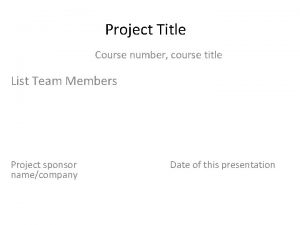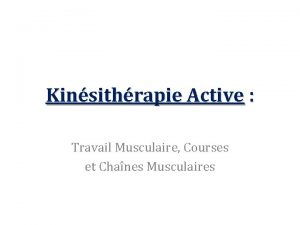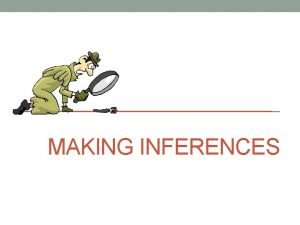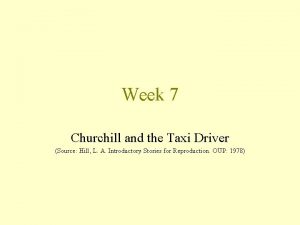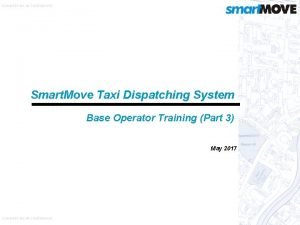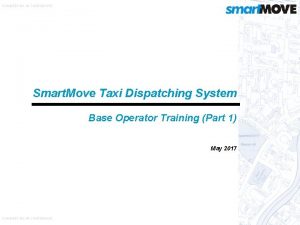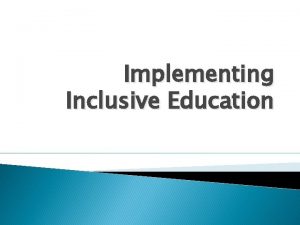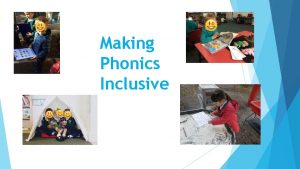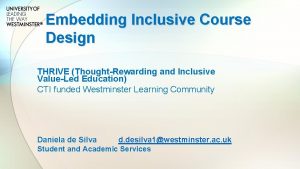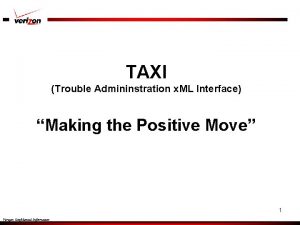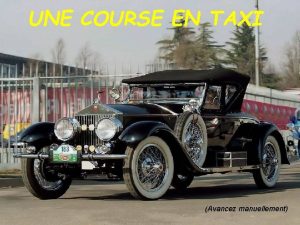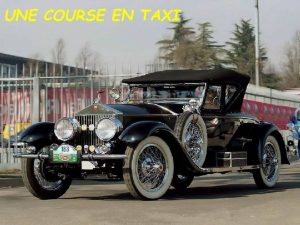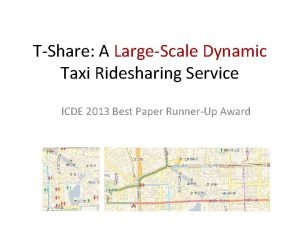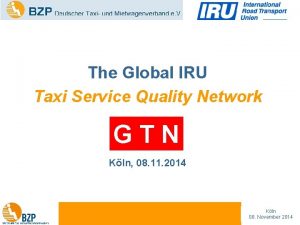Making your Taxi Service Inclusive Course Aim This





















- Slides: 21

Making your Taxi Service Inclusive

Course Aim • This course is designed to give an overview of the barriers faced by disabled people using taxis and promoting ways drivers can reduce these barriers.

Course Objectives • Raise an understanding of who disabled people are • Promote fair and equal treatment of disabled people • Encourage new driver behaviours to promote a more inclusive service

Who are Disabled people? • Disabled people make up over 20% of the population in NI. • People experience a range of different impairments • Many people have more than one impairment • Some disabled people have hidden impairments which will not be obvious to drivers

Who are Disabled people?

An Inclusive Taxi Service • Disabled people have the right to the same service as other passengers • Treat people as individuals and don’t make assumptions based on passengers disability • Talk to and be guided by passengers about what makes a inclusive service • Offering and providing appropriate assistance can make journeys easier

An Inclusive Taxi Service

Attitudinal Barriers • Difficulties can arise when drivers make assumptions, are fearful of, ignore or misunderstand disabled people • A positive driver attitude can make journeys much easier • Disabled people are individuals and will have their own preferences when travelling by taxi

Attitudinal Barriers

Attitudinal Barriers: Tips for drivers: • Be confident • Offer assistance but don’t assume all passengers will want or need this • Be patient allowing extra time for journeys • Remember be guided by the passenger – if in doubt ask!

Physical Barriers • The design of taxis and the wider environment can present physical barriers for disabled people • It is important drivers know how to use any equipment that can aid access – eg. ramps, steps, tie downs etc. • Offering appropriate assistance can help reduce physical barriers

Physical Barriers

Physical Barriers: Tips for drivers: • Different passengers require different vehicles • Safety is important - know how to use any equipment properly • Be prepared to provide assistance to and from and in and out of your vehicle • Warn passengers about any potential hazards during a journey

Communication Barriers • Poor communication can be a barrier • It is important to talk to and be guided by your passengers • Sometimes drivers need to have patience to understand what some passengers require • It is important that information given by passengers when booking is passed to the driver

Communication Barriers

Communication Barriers: Tips for drivers: • Talk to and be guided by your passenger throughout the journey • If your passenger has difficulty communicating be patient – carrying a pen and paper might help • Shouting at a passenger with hearing loss will not help communication • Keep your passenger informed of any issues during the journey

Feedback from Passengers • Be aware of who disabled people are • Talk to and listen to your passengers • Don’t make assumptions • Be pro-active and offer assistance

Feedback from Passengers

Points to Remember • Attitude – Treat your passengers as individuals and don’t make assumptions • Communication – Talk to and be guided by your passengers • Assistance – Offer and provide appropriate assistance

Points to Remember

Special thanks to. . . Disabled People’s Voices NI Northwest Forum Of People With Disabilities
 Quality taxi service
Quality taxi service Your service your say
Your service your say Cut brick lengthwise
Cut brick lengthwise Course title and course number
Course title and course number Course interne moyenne externe
Course interne moyenne externe What is inferring
What is inferring War making and state making as organized crime
War making and state making as organized crime Give us your hungry your tired your poor
Give us your hungry your tired your poor Churchill taxi driver
Churchill taxi driver Washington flyer taxi number
Washington flyer taxi number Taxi carmichael
Taxi carmichael Taxi license finland
Taxi license finland Smartmove taxi
Smartmove taxi Let's play begin
Let's play begin Smart move taxi
Smart move taxi Cowboy verkleinwoorden
Cowboy verkleinwoorden Taxi quotas
Taxi quotas Taxi meervoud
Taxi meervoud Doc taxi ballymoney
Doc taxi ballymoney Peas for interactive english tutor
Peas for interactive english tutor Taxi cerea
Taxi cerea Balzac and the little chinese seamstress quotes
Balzac and the little chinese seamstress quotes



